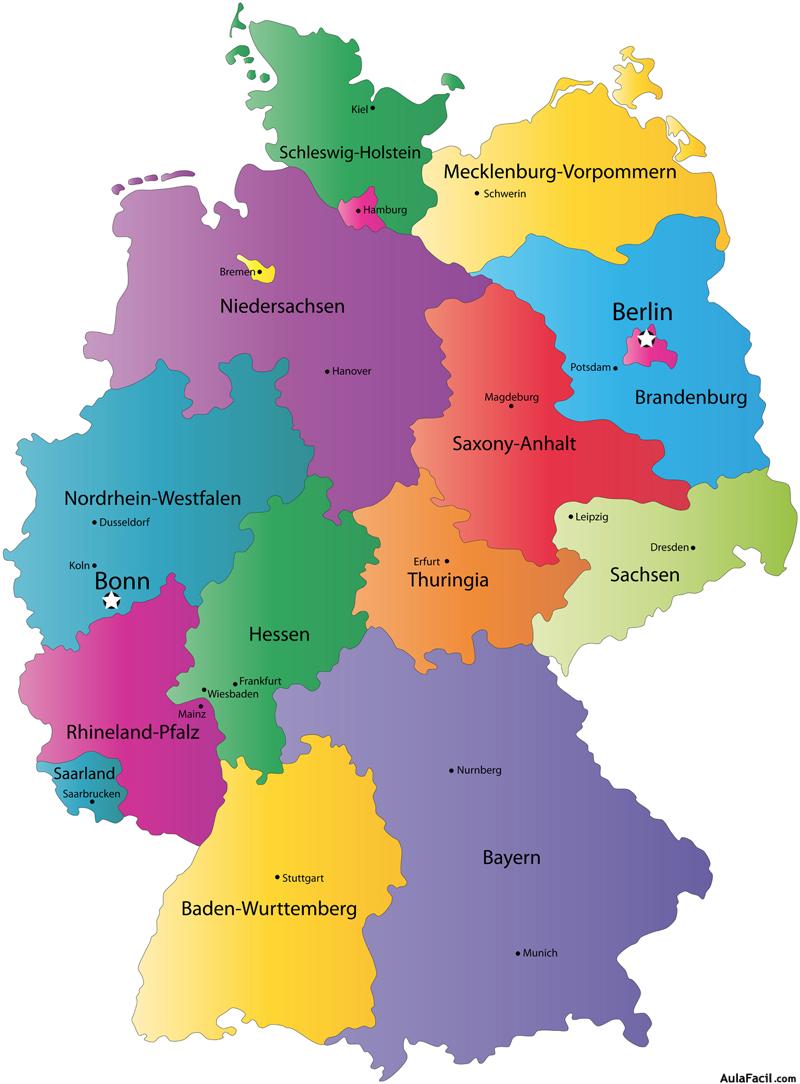Pronombres Personales
Escuchar Lección
En alemán, los pronombres personales que realizan la función de sujeto son los siguientes:
| Yo | Ich |
| Tu | Du |
| El | Er |
| Ella | Sie |
| El / ella (objeto) | Es |
| Nosotros | Wir |
| Vosotros | Ihr |
| Ellos / Usted; Ustedes | Sie |
Vemos los siguientes ejemplos:
| Ich arbeite | Yo trabajo |
| Du arbeitest | Tu trabajas |
| Er arbeitet | El trabaja |
Estos pronombres personales varían cuando se utilizan como complemento directo (acusativo), tal como ocurre en castellano:
| Me | Mich |
| Te | Dich |
| Lo (masculino) | Ihn |
| La | Sie |
| Lo (neutro) | Es |
| Nos | Uns |
| Os | Euch |
| Les / las / los | Sie |
| Ich sehe dich | Yo te veo |
| Sie sieht mich | Ella me ve |
| Wir sehen euch | Nosotros os vemos |
Igualmente, también varían cuando realizan la función de objeto indirecto (dativo):
| A mí (me) | Mir |
| A ti (te) | Dir |
| A él (le) | Ihm |
| A ella (le) | Ihr |
| A ello (le)) | Ihm |
| A nosotros (nos) | Uns |
| A vosotros (vos) | Euch |
| A ellos / as (les) | Ihnen |
| Ich helfe dir | Yo te ayudo |
| Sie hilft mir | Elle me ayuda |
| Ihr helft uns | Vosotros nos ayudáis |
VOCABULARIO
Escuchar Vocabulario
| Padre | Vater (m) | Suegro | Schwiegervater (m) |
| Madre | Mutter (f) | Suegra | Schwiegermutter (f) |
| Hermano | Bruder (m) | Yerno | Schwiegersohn (m) |
| Hermana | Schwester (f) | Nuera | Schwiegertochter (f) |
| Hijo | Sohn (m) | Cuñado | Schwager (m) |
| Hija | Tochter (f) | Cuñada | Schwägerin (f) |
| Abuelo | Grossvater (m) | Primo | Vetter (m) |
| Abuela | Grossmutter (f) | Prima | Kusine (f) |
| Nieto | Enkel (m) | Sobrino | Neffe (m) |
| Nieta | Enkelin (f) | Sobrina | Nichte (f) |
| Tía | Tante (f) | Tío | Onkel (m) |
